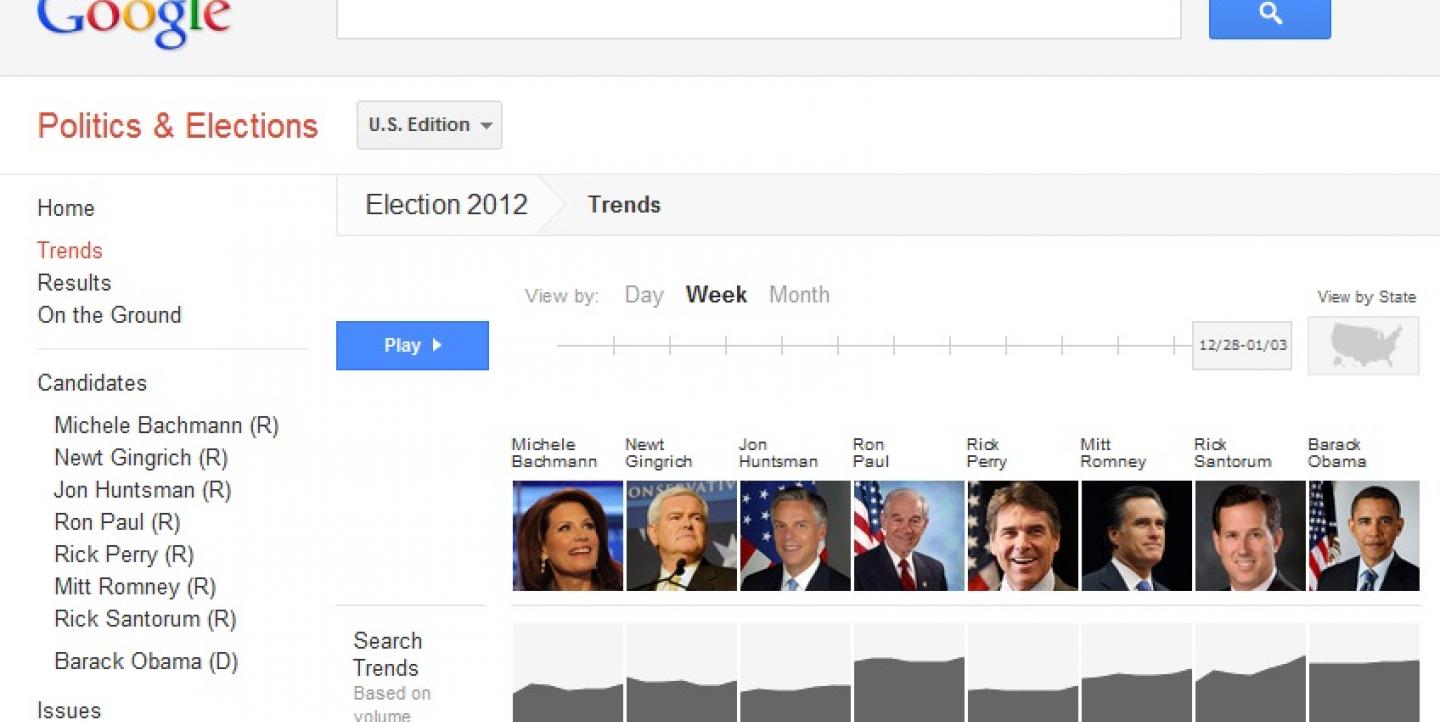The new Google Politics & Elections site helps journalists find trends and transform information into maps or timelines.
Launched during the Iowa Caucus in the run-up to the U.S. presidential election, Google Politics & Elections includes a special section for journalists, which provides a number of useful tools.
“The site enables voters, journalists and campaigns to quickly sort through election info by popularity, race or themes. People can also check out the Trends Dashboard to take the web’s real-time political pulse by comparing candidates’ YouTube video views, search traffic and Google News mentions,” said site team member Eric Hysen.
Here's what IJNet thinks will be most useful for journalists covering the race:
- Google + for Politics: This tool shows campaigns' and candidates' Google Plus sites. It lets reporters track how campaigns communicate different messages to different audiences through the use of "circles" or holding virtual meetings with voters.
- Trends: With Google Trends you can compare the interest of U.S. citizens on any subject, including politics, elections and candidates. Journalists can also track up to five topics at a time to see how frequently they pop up in Google searches and where, geographically, people have searched for them.
- Fusion Tables: The tool, one of our top Google tools that journalists don't use but should, enables journalists to transform information into maps, timelines or simple rankings. It also helps to combine and share information from multiple sources.
- Insight for search: With this tool, Google tracks what people look for in search engines in real time. You can compare patterns in the volumes of information across regions, categories, time frames and properties.
- News by candidate and issue: If you don’t want to miss who said what and when, Google organizes the news by name. You can choose, for example, "Barack Obama" or "Rick Perry," and all the news stories where they are quoted will appear in chronological order. In addition, you can search for topics such as economics, immigration, health care, employment and unemployment, national security or social issues.

